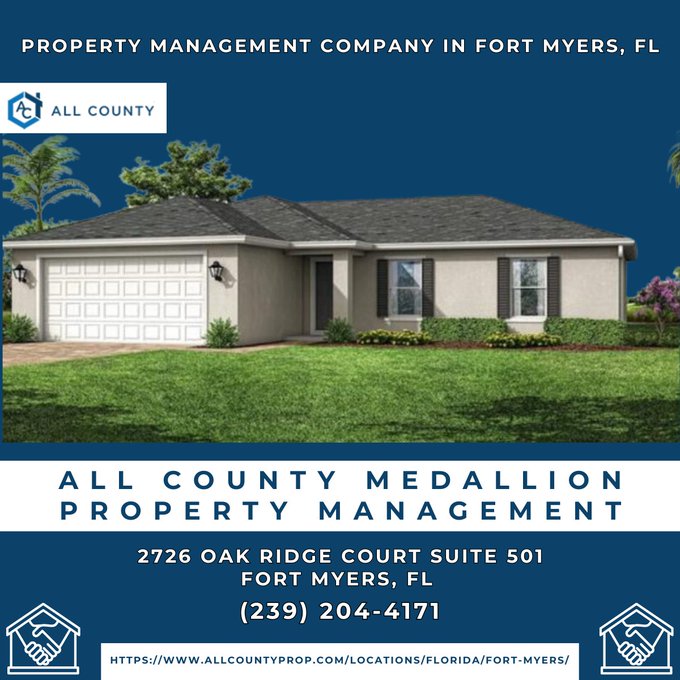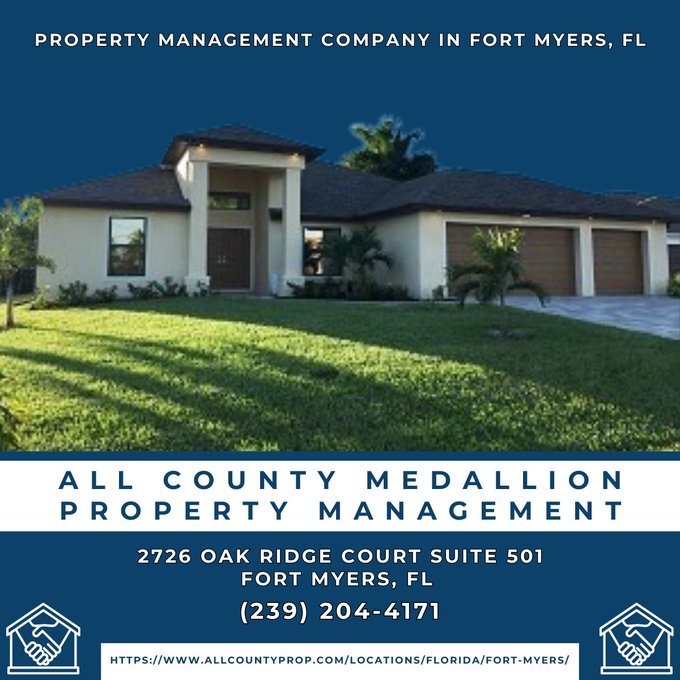Introduction
Navigating the world of property management can be an intricate affair, especially in a vibrant real estate market like Florida. With its sprawling beaches and bustling cities, the demand for property management services is soaring. But before diving into this lucrative field, one question stands out: Do you need a license to be a property manager in Florida? This article aims to unravel this query while exploring various facets of property management in the Sunshine State. From fees and responsibilities to top companies and market dynamics, you're about to get a comprehensive overview.
Do You Need a License to Be a Property Manager in Florida?
The straightforward answer is yes; you typically do need a license to operate as a property manager in Florida. Under the laws governing real estate transactions, managing properties on behalf of an owner constitutes engaging in real estate activities that require licensure.
What Type of License Is Required?
In Florida, if you're managing rental properties for others, you'll need either:
- A Real Estate Broker's License: This is necessary if you’re managing properties for multiple owners or collecting rent. A Real Estate Sales Associate License: If you work under the supervision of a broker and perform tasks like showing properties.
Without these licenses, operating as a property manager could lead to legal complications.
Exceptions to Licensing Requirements
Interestingly, there are scenarios where individuals may manage properties without needing a license. For instance:
- If you own the property outright and are renting it yourself. If you’re working as an employee within a company that manages its own properties (but not for third parties).
These exceptions highlight that while many aspects of property management require licensure, there are pathways where individuals can operate without one.
Understanding Property Management Fees in Florida
What is the Average Property Management Fee in Florida?
When considering hiring a property manager or becoming one yourself, understanding property management fees is crucial. On average, property management companies in Florida charge between 8% to 12% of the monthly rent collected.
Factors Influencing Fees
Several factors can influence these fees:
- Location: Urban areas with higher costs of living may feature higher fees. Services Provided: Comprehensive management services (like maintenance and tenant screening) often command higher rates. Property Type: Single-family homes might have different rates compared to multi-family units or commercial properties.
This range means it's essential for both landlords and prospective managers to shop around and understand what services they’re getting for their money.
What is the Most Common Payment for a Property Manager?
The most common payment structure involves charging based on a percentage of the rent collected. However, some managers may offer flat fee arrangements or charge additional fees for specific services like tenant placement or maintenance coordination.
http://alabama-hill-558.almoheet-travel.com/the-role-of-communication-in-successful-tenant-manager-relationshipsThe Demand for Property Managers in Florida
Why is There High Demand for Property Managers in Florida?
Florida’s rapidly growing population translates into increased housing needs—be it rentals or sales. Factors contributing to this high demand include:
Tourism: With millions visiting annually, short-term rentals are popping up everywhere. Relocation: Many people move to Florida seeking better weather or job opportunities. Investment Opportunities: Investors are flocking into the state’s real estate market due to its potential for high returns.The convergence of these factors has created fertile ground for property managers who can navigate this dynamic landscape effectively.
Comparing Management Fees Across States
How Much Does Property Management Charge in the US?
In general terms, property management fees across the United States vary widely but generally fall between 8% and 12% of rental income—similar to what we see in Florida. However, certain states might trend higher or lower depending on local economic conditions.
| State | Average Management Fee |
|-------|------------------------| | Texas | 8% - 10% | | Arizona | 8% - 12% | | Georgia | 7% - 10% |
As we can see from this table, while many states align closely with Florida’s average rates, variations exist based on regional demands and operational costs.
Salary Insights for Property Managers in Florida
How Much Does a Certified Property Manager Make in Florida?
Certified property managers typically enjoy better salaries than their non-certified counterparts due to their credentials' added value. The average salary ranges from $45,000 to $65,000 annually depending on experience and location within Florida.
What Influences Salary?
- Certifications such as CPM (Certified Property Manager) can lead to higher earnings. Experience level plays an important role—more seasoned professionals often earn more.
Roles and Responsibilities of Property Managers
What is the Biggest Responsibility for Property Management?
The core responsibility lies in ensuring that properties are well-maintained and profitable. This encompasses:
Tenant Screening: Finding reliable tenants through thorough background checks. Rent Collection: Ensuring timely payments from tenants. Maintenance Coordination: Addressing repair needs promptly. Legal Compliance: Understanding landlord-tenant laws specific to Florida.Each task requires attention to detail and strong communication skills which are vital for successful property management.
Top Companies & Industry Leaders
Who Are the Top 10 Property Management Companies?
In such a competitive landscape like Florida's real estate market, several companies stand out:
Greystar Real Estate Partners Lincoln Property Company Cushman & Wakefield CBRE Group Avenue5 Residential Alliance Residential Company FirstService Residential RPM Living Invitation Homes Equity ResidentialThese companies have established themselves not just by size but through quality service delivery that meets clients’ needs efficiently.
Payment Structures For Property Managers
What is a Good Management Fee?
A “good” management fee hinges on what services are included within that fee structure:
- Basic coverage often falls around 8%. Comprehensive services including marketing might see fees rise toward 12%.
Always ensure clarity during negotiations regarding what’s covered—this transparency will foster trust between landlords and managers alike.
What Percent Do Most Property Management Companies Take?
Most companies typically take between 8% - 10%. However, niche providers focusing on luxury rentals might adjust their rates upwards based on exclusive offerings they provide.
Unlicensed Operations & Legalities
What Can an Unlicensed Property Manager Do In Florida?
Unlicensed individuals face limitations regarding activities they can legally undertake:
They cannot collect rent on behalf of others unless licensed. They may assist friends/family informally but should avoid any public advertising or formal agreements without proper licensure. They also may not represent landlords during lease negotiations or evictions without appropriate licensing credentials.Understanding these boundaries helps prevent unintentional legal violations which could result in fines or other penalties down the road.
FAQ Section
FAQ #1: How Long Does It Take To Become A Property Manager In Florida?
Typically, completing necessary coursework takes about several months followed by passing state exams; overall expect anywhere from six months up to two years depending on your pace through education requirements & practical experience accumulation needed prior certification/licensing process completion!
FAQ #2: Can I Manage My Own Property In Florida?
Absolutely! As long as you own it outright—managing your own rental doesn’t require formal licensing unless dealing with multiple owners’ assets!
FAQ #3: How Much Does A Property Manager Cost In Florida?
Costs vary widely based upon service types requested; general fee ranges remain at approximately 8%-12%, though more extensive services/duties would likely incur additional charges beyond standard percentages!
FAQ #4: Why Is Rent So High In Florida?
Rising demand coupled with relatively low housing supply creates upward pressure leading landlords charging premium prices; additionally seasonal tourism influxes further exacerbate limited availability during peak months contributing considerably onto pricing dynamics being witnessed throughout region currently!
FAQ #5: What Kind Of Property Manager Makes The Most Money?
Generally certified/property managers overseeing large apartment complexes yield highest earnings; those running smaller residential operations tend towards lower salary brackets comparatively speaking!
FAQ #6: Do Property Managers In Florida Need A License?
Yes! Engaging actively within managerial roles requires appropriate licensing certification per Floridian laws governing real estate practices/professions outlined previously herein discussed topics above!
Conclusion
Engaging with property management presents both opportunities and challenges within vibrant markets like those found across sunny regions such as Floridian landscapes! Understanding whether you need licensure alongside potential earnings structures remains paramount when considering entering industry realms surrounding realty endeavors! With ongoing growth prospects driving demand ever skyward—it’s clear why so many seek professional assistance navigating complexities inherent therein today’s marketplace trends! Remember though—you've got options available at your fingertips; just ensure knowledge guides decisions made along way forward knowing full well paths ahead remain abundant awaiting exploration!


